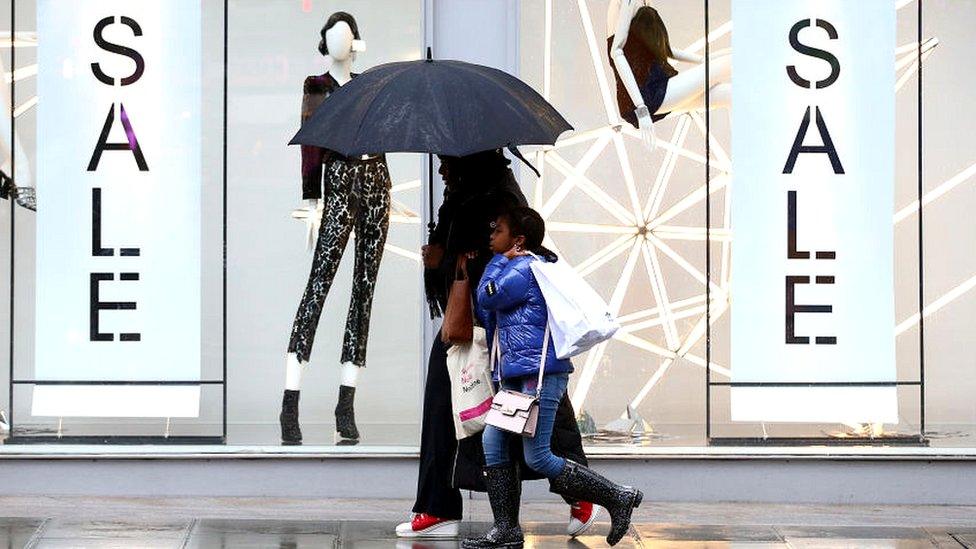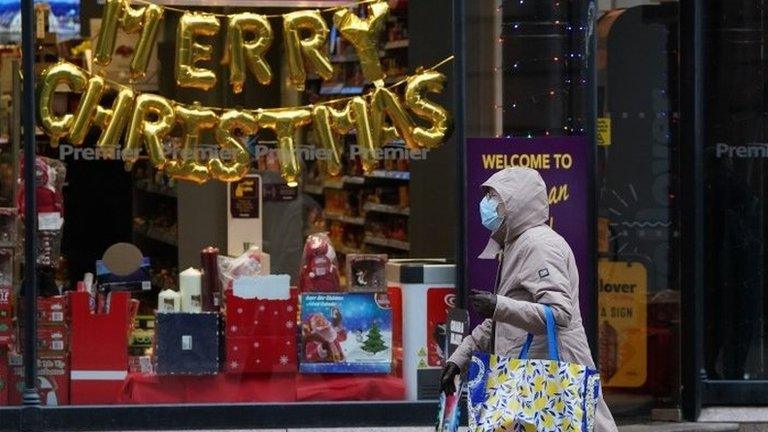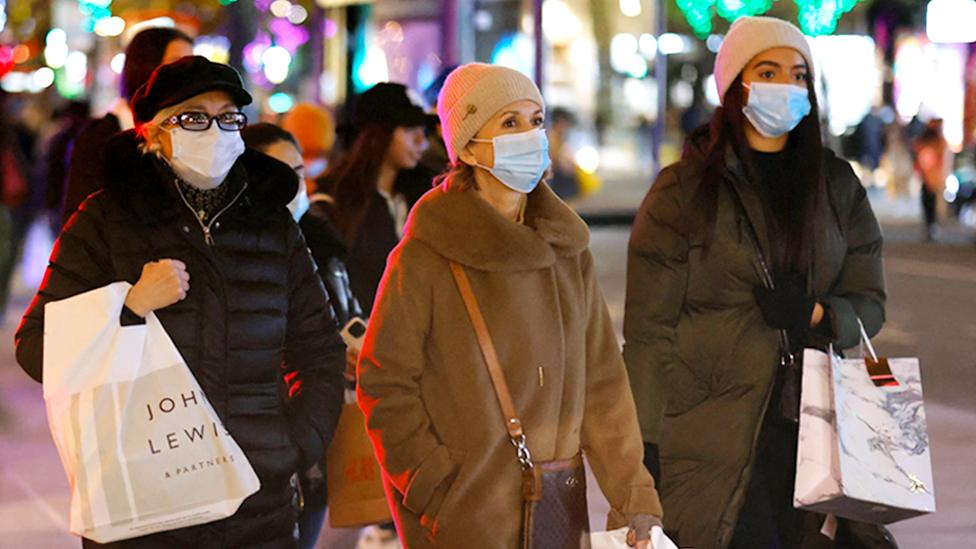Shoppers shun Christmas sales as footfall drops amid Covid fears
- Published

The number of people taking advantage of post-Christmas sales on Monday fell by 32% compared with 2019, new data shows, amid persistent Covid concerns.
Retail analyst Springboard said footfall figures were better than Boxing Day.
But popular shopping destinations such as central London saw a drop caused in part by disruption to rail services.
Shoppers chose to visit retail parks on Monday, but footfall there was still down 7.2% from pre-pandemic levels.
That contrasted with a sharp drop in footfall on High Streets, down 40.1% on 2019, and in shopping centres, which recorded a 38.8% decline.
"The greater attraction of retail parks is in part likely to be a result of shoppers restocking groceries following the weekend's festivities," said Diane Wehrle, insights director at Springboard.
It is a reversal of the trend seen on Boxing Day when more people shopped on High Streets than in retail parks. However, overall Boxing Day footfall figures were far lower than pre-Covid levels.
Across the UK, Springboard said High Streets saw footfall drop on Boxing Day by 37.7% compared with 2019. Retail parks recorded a 40.2% decline in footfall while there was a sharper 48.4% drop in shopping centres.
Springboard said footfall declined on Boxing Day due to fears over Covid, as well as the fact the traditional start of post-Christmas sales fell on a Sunday this year and some big name stores opted to stay closed.
Companies including Next, John Lewis and M&S decided to shut on Boxing Day to give staff a longer Christmas break, though they launched their sales online.
'Muted for some time'
On Monday, footfall across all UK regions declined with the sharpest drop in Wales, where it fell by 40.3%.
Wales introduced tighter Covid restrictions on 26 December, including limiting the number of people who can meet in pubs, cinemas and restaurants to groups of no more than six people.
Scotland and Northern Ireland also brought in similar rules from Monday. In Scotland, footfall in shops dropped by 33.3% while in Northern Ireland it fell by 36.6%.
Overall, shopping numbers in England fell by 31.1%, according to Springboard. In London, footfall plunged by 50% compared with the same day in 2019, a much sharper drop than in other areas of the UK.
Ms Wehrle said: "Footfall is weaker in central London than in large city centres elsewhere in the UK, which in part is likely to be a result of cancellations of trains restricting shoppers' ability to get into the capital."
But Jace Tyrrell, chief executive of the West End Company, which represents shops, hotels and restaurants in central London, told the BBC: "We are still dealing with Covid and we haven't got international tourists here so it is going to be muted for some time [for] customers coming into the West End."

A VERY BRITISH SCANDAL: One of the most notorious and brutal legal cases of the 20th century
A STUNNING WINTER WALK: Shepherdess Amanda Owen takes us through the Yorkshire Dales

Related topics
- Published24 December 2021

- Published20 December 2021
